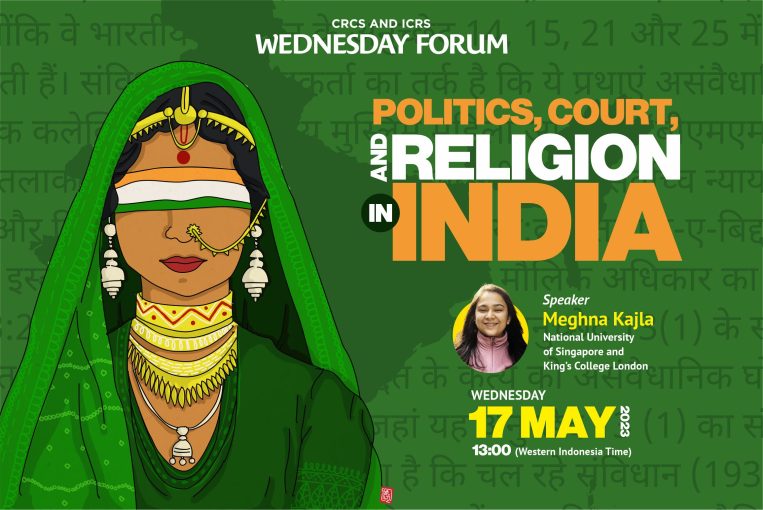
Politics, Court, and Religion in India
Wednesday Forum – 17 May 2023
The Supreme Court of India examines the constitutionality of the Talaq-e-biddat, a practice to seek divorce among the Muslims in India. Seeking a remedy to this practice, the petitioner appeals that the court should declare it invalid because it is gender discriminatory, arbitrary, and is not an essential part of the religion. Through the majority judgment, Talaq-e-biddat is set aside, which is based on the essential religious practice test and doctrine of arbitrariness. This case engages questions of gender equality, right to religion, and authority of the judiciary to intervene in the personal laws. While engaging with the Article 25 on religious freedom, this paper aims to argue that the liberal rights are used by citizens to claim religious rights. It shows the politics of society in India which is influenced by the majority religion. It does so by conducting an in-depth textual analysis of the Triple Talaq case record and interviews conducted with lawyers, journalists, and activists.
Meghna Kajla is a joint PhD candidate at the National University of Singapore and King’s College London. Her thesis is titled A Tangled Web: Judiciary and Religion in India and Indonesia. It is a comparative study of apex courts’ adjudication of religious matters to analyse state-religion relations in two countries.
The full poster of this event is available here
